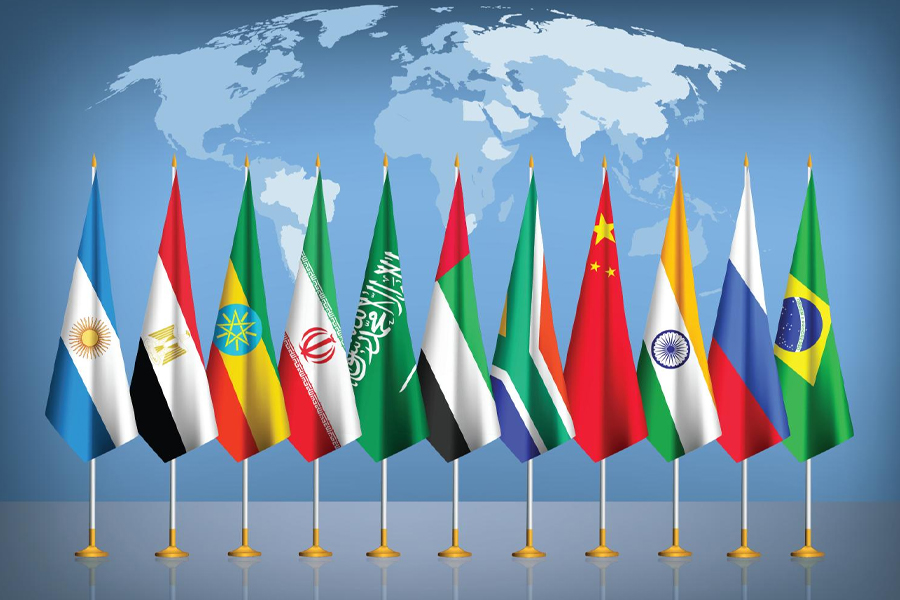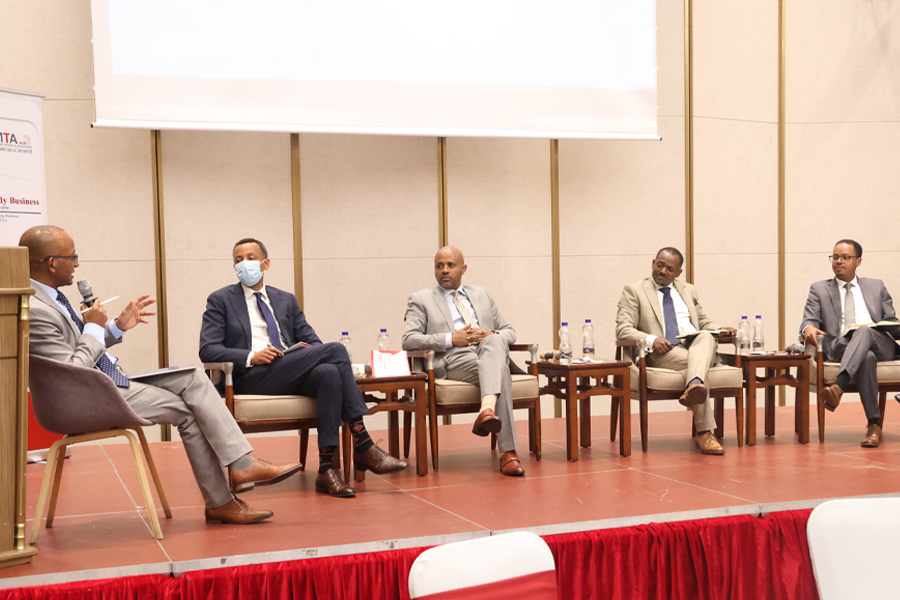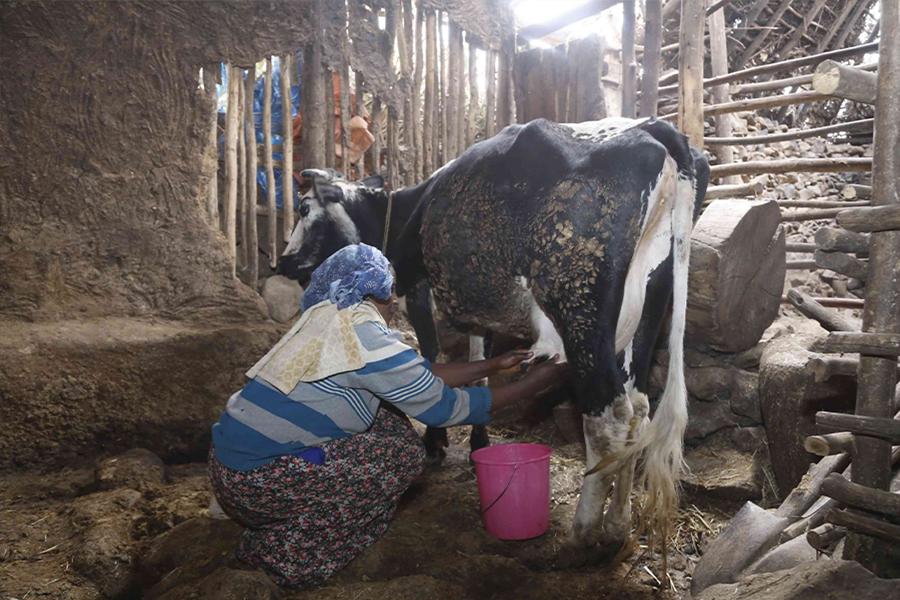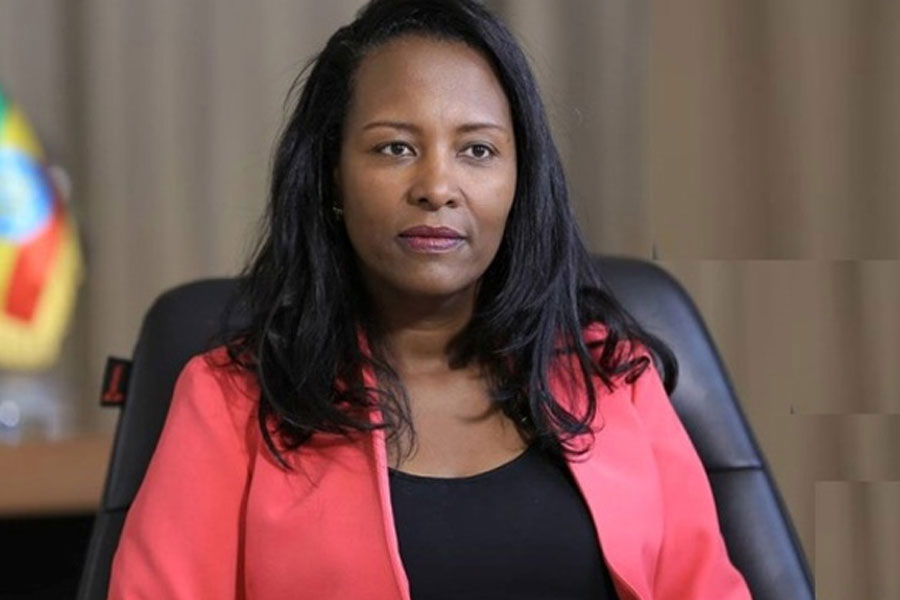
Sep 3 , 2022.
The late American President, Ronald Reagan, went back after 50 years to a college in Chicago where he graduated to give a commencement address. A year into his consequential presidency, Reagan used the platform to announce a major foreign policy agenda that had reversed “détente”, a four-decade policy that kept active war at bay but never assured durable peace. He announced his desire to change course, resolving that “Peace is not the absence of conflict, it is the ability to handle conflict by peaceful means.”
Alas! The inability to manage conflicts through peaceful means brought full-blown war back to Ethiopia’s terrains. The details of what transpired in the days before last week remain unclear. Recriminations are constantly thrown around, but there is an agreement on at least one issue. A widespread militarised conflict is back in the northern part, albeit a relatively low-scale conflict with the federal government trying to nib in the bud a growing insurgency in the southwest has been ongoing.
The parties in the resumed full-fledged civil war have tested the lull in active fighting and the benefit of relative peace – or at least the silence of guns – for a few months. They seemed to have not liked it. Each declared its firm hope and conviction for peace. Yet, all claim their hands are forced. But too many people have fallen victim: women are subjected to sexual violence and children to death. It should be frustrating for anyone to believe them any longer except their blindly radical supporters.
The fateful day was August 24, 2022, when the truce between the federal government and the TPLF, designated a terrorist organisation by parliament, was broken. The shots were fired, and the echoes of cry and suffering revibrated. It escalated quickly, unlike the “negotiations” process that could not lift from the ground. The warring sides are like smokers. It takes them every energy they can muster to quit their addiction for a while. But one bad day, and air strikes, bombings and aggressions are let fly as the addiction takes over.
Months of indirect talks through third parties were thrown out of the window, even as leaders of the warring sides kept saying that peace was all they wanted. Rhetoric is the most misused currency in politics. Either side brings peace to the people they claim to care about so dearly, or they do not. The latter is the prevailing condition that speaks a great deal more than the word slinging across media outlets.
But for a short while, it had seemed that the politicians had come to their senses. The rhetoric had calmed down, the guns were silent, and ongoing communications through intermediaries provided a flicker of hope for peace. Addis Abeba declared a humanitarian truce, a welcome move that was also reciprocated by the acknowledgement of Meqelle. Transport of food and fuel to the suffering in Tigray and surrounding regions blighted by conflict improved, even if there was much more to be done.
Few, except those in the war camps, who have built their influence and identity around the war, wanted it to continue. A prospect for a peace process under the auspices of the African Union (AU) or the mediation of Kenyan leaders backed by the United States was on the table. The federal government announced the formation of a negotiating committee chaired by Demeke Mekonnen, deputy prime minister and the foreign minister. Leaders of the TPLF had passed on letters guaranteeing safety to workers that could be brought into Tigray to help resume essential services.
That was all in vain now as the battles are raging with consequent suffering. Tragic!
Truth is the first casualty in war. With the rapidity of how things are developing and parties to the wars doing everything they can to manipulate public opinion, it is hard to sift the truth at this point. It should also be understood that pushing the “bothsideism” narrative is unsatisfactory. It could be a waste of energy and time at this point to try and unravel why a process for peace could have slipped away so fast to a catastrophic conflict.
No less, this seems to be one episode in the war. Little else except bringing permanent peace, and seeing it through for as long as they are in power, will come remotely close to absolving the political leaders making decisions to restart this war in the first place.
With the new round of fighting, there is one critical difference, though. Unlike at the beginning of the war almost two years ago, there appears little public enthusiasm to hash out political differences through military confrontations. It is tempting to believe that wise words of Reagan echo around. The public has been burned so much over the past two years that it appears to have realised the fruits of war are a mirage.
While the gains of all the fighting are hard to narrow down, the losses are apparent for everyone but the completely partisan. It is hard to count dead bodies in the heat of war, but tens of thousands, including civilians, could be killed. Decades of improvements in human development have been wiped out, while children are starving and households impoverished into bare subsistence. Countless women have also been subjected to violence. Parties in the war have taken turns perpetrating these atrocities, which their die-hard supporters conveniently gloss over or unashamedly deny.
The international community - if at all such formation still exists - appears fed up, even if its responses over the past two years have left a great deal to be desired. Resources, time and effort, have been expensed by regional and international partners that seem to care more about the well-being of Ethiopians than the politicians and their die-hard supporters.
The enthusiasm for further killing, maiming, and destruction may remain with political leaders and their radical supporters. However, few others want to see the resumption of war over communities that have absorbed the brunt of the fighting over the past two years. Here lies the opportunity to bring them back to the negotiating table. It is not too late to stop the fight and start talks. It may not be easy, but it is very early to forget the painful consequence of war. It is an unwinnable battle.
The answer to halting and handling the conflict through peaceful mechanisms lies with domestic players. Despite political differences, for everyone’s good, it is necessary to come together under an apolitical pacifist movement that pushes for a ceasefire deal and, eventually, negotiated settlements for enduring peace. The destruction with the first round of the war needs to be hammered in, and the futility of fighting emphasised.
The lessons from the past two years should be clear: it is a long shot to appeal to the warring sides’ empathy. Still, it is vital to record and emphasise that this is an unwinnable war. Common sense’s few and far apart voices cannot do this alone. It is crucial to show solidarity with peace; and, for once, make history by bringing the war to an end.
PUBLISHED ON
Sep 03,2022 [ VOL
23 , NO
1166]

Life Matters | Jun 28,2025

Viewpoints | Oct 20,2024

Fortune News | Oct 06,2024

Radar | Oct 05,2024

Radar | Oct 27,2024

Fortune News | Jul 06,2025

My Opinion | Apr 28,2024

Agenda | May 17,2025

Radar | Jul 17,2022

Radar | Feb 03,2024

My Opinion | 132151 Views | Aug 14,2021

My Opinion | 128561 Views | Aug 21,2021

My Opinion | 126482 Views | Sep 10,2021

My Opinion | 124091 Views | Aug 07,2021

Dec 22 , 2024 . By TIZITA SHEWAFERAW
Charged with transforming colossal state-owned enterprises into modern and competitiv...

Aug 18 , 2024 . By AKSAH ITALO
Although predictable Yonas Zerihun's job in the ride-hailing service is not immune to...

Jul 28 , 2024 . By TIZITA SHEWAFERAW
Unhabitual, perhaps too many, Samuel Gebreyohannes, 38, used to occasionally enjoy a couple of beers at breakfast. However, he recently swit...

Jul 13 , 2024 . By AKSAH ITALO
Investors who rely on tractors, trucks, and field vehicles for commuting, transporting commodities, and f...

Jul 13 , 2025 . By YITBAREK GETACHEW
The Addis Abeba City Revenue Bureau has introduced a new directive set to reshape how...

Jul 13 , 2025 . By BEZAWIT HULUAGER
Addis Abeba has approved a record 350 billion Br budget for the 2025/26 fiscal year,...

Jul 13 , 2025 . By RUTH BERHANU
The Addis Abeba Revenue Bureau has scrapped a value-added tax (VAT) on unprocessed ve...

Jul 13 , 2025 . By NAHOM AYELE
Federal lawmakers have finally brought closure to a protracted and contentious tax de...